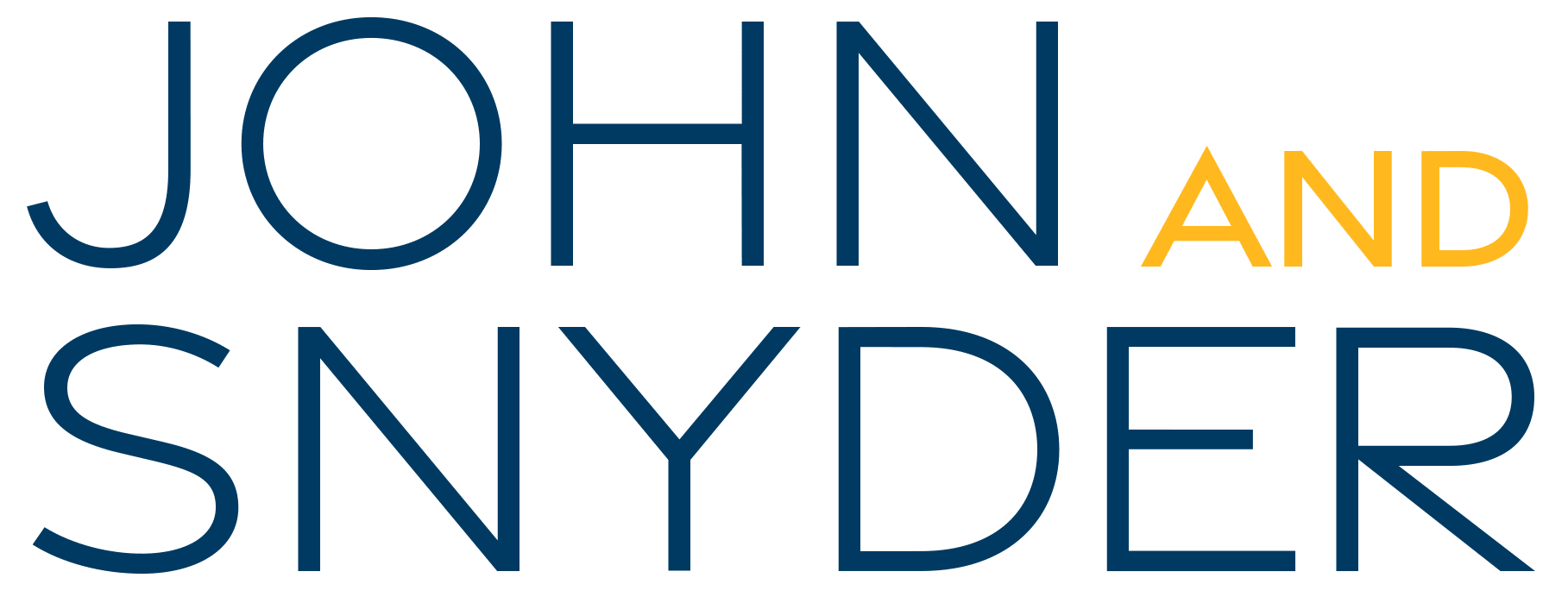By Steve John & Jason Snyder
“I am always doing that which I cannot do, in order that I may learn how to do it.”
— Pablo Picasso
You’re working hard, head down, focused on the pile of work in front of you. It feels like there isn’t enough time in the day to get through it all, let alone take an interview for a job you aren’t sure you’re interested in or qualified to do.
Few people want to interview for a job they are not going to get, yet the odds of landing every job you interview for are slim. Your chances of succeeding in any interview improve significantly if you’re practiced and ready.
If you’re still on the fence about taking the interview, here are six good reasons why you should go for it.
One: You get to tell your professional story/perfect your elevator pitch.
How often do you tell the story of your career? I’m not talking about the one-liners at networking events or dinner party chatter. I’m talking about the times you’ve had the chance to explain how you got into your line of work, why you made big job moves, and where you think you’re headed as you continue to grow professionally. I’ll wager that unless you’ve done so as part of a recruiting process, you rarely get to tell this story. I see it all the time in my practice. A talented professional with a long, steady track record who has rarely, if ever, had to interview for a job finds herself wholly unprepared to tell the story of her career when she finally faces an interview process.
Accepting invitations to interview will help you clarify the details of your resume in your mind. It will also help you refine your pitch to others so that you’re prepared when the opportunity of a lifetime comes along.
Two: You’ll grow your professional network.
The vast majority of people find jobs through their professional contacts. This is true regardless of industry or function. Yet, I regularly work with senior professionals who have failed to cultivate even the most modest of professional networks because of their insanely busy work lives.
Interviewing may not be the most effective way to grow an extensive network, but it may be the perfect way to curate an industry-specific network. You’ll meet recruiters, HR pros, and business leaders who will remember you if you stay in touch with them, regardless of your interview results. Perhaps another opportunity will open up in the organization, one for which you are better suited. The people you meet will eventually make their professional moves, and they will make hires in their new leadership roles. If you stay on their radar, they might hire you for a role in their organization that aligns with your interests and skills better.
No matter what comes of an interview, use the experience to expand and deepen your professional connections. At a minimum, you’ll get to know more people in your field or industry. But if you do the work to make those connections meaningful, they will open doors. After the interview, a simple LinkedIn invitation is all it takes to keep these people in your network.
Three: You’ll gain important industry insight.
Interviews provide an excellent forum for learning about the movers and shakers in your industry and the critical initiatives they are driving. Even if accepting a job interview requires that you sign an NDA, anything you learn about the markets you work in will make you better at your job as a strategist, advisor, or operator.
We advise recent graduates and young professionals to seek out informational interviews wherever possible. An informational interview is an informal conversation you have with someone in your field. It offers a golden opportunity to ask probing questions to understand better an organization, its people, and the industry’s career opportunities.
Why not treat every invitation to interview as an invitation to learn? If you’re seriously interested in the job you’re interviewing for, great. You’re in the mix. But if you’re not sure, if you have agreed to the interview to kick tires, make the most of your time by asking probing questions about the business, its leadership team, and the possible career paths available to someone with your experience or ambition.
Four: You’ll develop greater self-awareness.
We don’t ask for feedback often enough, and that’s a shame. No matter how much navel-gazing we do, no matter how much time we spend in our heads, there is no substitute for external feedback in gaining insight into our interpersonal strengths and weaknesses.
Feedback isn’t always objective when solicited from colleagues or bosses. But when the feedback comes from a disinterested third party in the form of a recruiter or hiring executive outside your organization, you can rest assured the input is coming from a more objective place, and it is gold!
Most important: an interview may reveal gaps in your experience or skillset you weren’t aware of. Use that new knowledge to help you sort out your approach to closing the gap. Learning something new will likely help you in your current role. It may also inspire new paths to future professional development through skills-based training or coaching.
Five: It’ll get the creative career juices flowing.
You may get an invitation to interview for something that, on its surface, doesn’t look at all like the “right” fit for you. Hard as they try, recruiters and hiring executives aren’t always crystal clear when describing a position, even if the organization has a long history of the role. After all, things change. Organizations change. Industries change. Technologies change.
If you are interviewing for a new position in the organization, you can be sure the people who will ultimately make the hiring decision aren’t sure what they’re looking for when they start their search. Every interview is an opportunity to refine their thinking about the organization’s needs and the experience that will best meet those needs.
Our advice? Go with the flow. Let go of your need for a precise definition, and use the interview as an opportunity to think critically. What if the job isn’t a fit, but it inspires you to think differently about the possibilities along your career path? Wouldn’t that make it worth your time to interview?
Six: Practice makes … better.
Aside from honing your pitch, interviewing allows you to see how other organizations hire. You get to see what does and doesn’t work in the vetting process. And you get to experiment with your approach to a range of interview questions. The more you interview, the better you’ll get at telling your story. You’ll also get better at conducting interviews when it’s your turn to make a hire.
Take the interview
If you are at all curious about the role, the organization, or the industry niche they occupy, take the interview. Even if you don’t get the job, the vetting process can be a valuable learning experience — for you and the organization interviewing you. You learn a little more about yourself when you’re asked to reflect on your experiences. You make new friends. You learn something about the industry. More importantly, you learn to think differently about your career possibilities by imagining yourself in a different role.
Finally, if you’re worried about wasting your time or your interviewer’s time, don’t be. There is no such thing as time wasted on an interview if you accept the invitation in good faith. Remember, you are there for you. You take an interview to explore and learn. Maybe you discover that you are genuinely not interested in the role. Perhaps you’ll be surprised to find that you are interested. Your interviewer knows a little more about you and the other candidates in the pool. Everyone learns something from the exchange, so just go for it.






